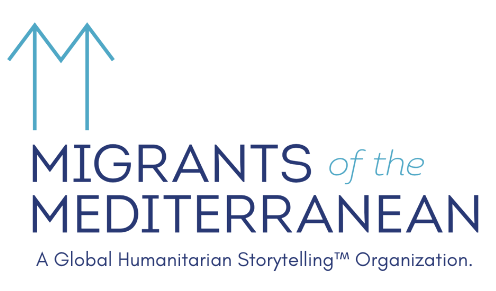Meet Marienna
Marienna in Hardenberg, Netherlands. 10 June 2021. ©Pamela Kerpius/Migrants of the Mediterranean
by
Pamela Kerpius
Recorded:
10 June 2021
Published:
30 July 2021
Meet Marienna.
From Brikama, Gambia.
To reach Europe he crossed six countries: The Gambia, Senegal, Mali, Burkina Faso, Niger, and the most dangerous of all, Libya.
His journey took about one year. He departed for Senegal first, where he stayed for about five months before departing on the rest of his journey that would ultimately take him to Italy.
He traveled by bus from Senegal to Mali, then on to Burkina Faso on the same bus, and remaining in Burkina for about two weeks. In Burkina, he stayed in a compound that held more than 300 people. It wasn’t safe to go out. So, in small groups people would go together to keep watch over each other. They left only to buy water to drink and food to eat.
There were checkpoints along the way when his travel resumed. The cost of the bribes were already included in the price of his transport, but more was required to satisfy the police along the way.
He stopped in Naimey, Niger for one week, in a compound that held more than 200 people. “You don’t want the police to see the Black people,” Marienna said, “you have to hide yourself” to stay safe.
From Naimey he traveled to Agadez, Niger. He stayed for one month. His money was out. He had to work, and so, once his traffickers found out he was capable of driving a boat from his time as a fisherman in Senegal, they enlisted him as a captain for when he finally reached the Libyan shore. In exchange, the remainder of his travel through North Africa would be paid for.
“‘You don’t want the police to see the Black people,’
Marienna said, ‘you have to hide yourself.’”
Marienna crossed the Sahara desert in the back of a pickup truck. His, one of five in a caravan that each held 14 people in the back. They filled big containers of water before they departed, and sat on them to keep them steadied in the truck.
One person fell from his truck and died. The driver stopped. The passengers took a moment to bury him in the desert, but Marienna added, “At that time everyone is thinking about themselves.” His crossing took two days, but it could be a whole month in the desert if the truck got lost, he said.
Everyone suffered for lack of food. Water ran out, there was nothing left to drink.
He arrived in Sabha, Libya at 6:00p.m. He could not speak or stand from the exhaustion and dehydration of the crossing.
He spend three days total in Sabha in a camp or compound that held groups of people he wasn’t able to count. There was no place to sleep. He laid on the floor lined up with others who were beaten while they were sleeping. Their traffickers and captors flogged and whipped them at random.
He transferred next to Bani Waled and stayed for one day. He had low stress here because he knew he was leaving almost immediately, and even had food to eat.
It was a slow trickling of people into Tripoli. Carload by carload people were transferred to the capital city to avoid drawing attention from the authorities. Marienna stayed in Tripoli for two months. Because of his previous arrangement as a boat captain, he was being taken care of. He actually didn’t want to leave. He took his time there. He had food and was able to rest. His traffickers negotiated a salary for him to help transfer people in Tripoli to other connection houses.
All the same, he wasn’t immune to violence. He encountered Libyan “small boys” who pointed their guns at him and threatened him.
He arrived in Zuwara, a city outside Tripoli on the sea, and stayed for four weeks. It was “too hard” there, Marienna said. He was required to work inflating boats and pushing the loaded dinghies off the shore.
They were all considered the same at the seashore, he said. In spite of his salary and position, his money was robbed. He drank water from a garden hose, basic tap water that made his stomach ill. After two or 3 weeks, he said, his stomach finally started to adjust to it, just in time to depart.
Marienna crossed the Mediterranean Sea at 11:00p.m. in a rubber dinghy with 150 people, including 3 women, one of them pregnant, and one child. He spent six hours at sea. He watched the sun rise. He was rescued by the Guardia Costiera and landed in Lampedusa on 26 July 2016.
He was living in Hardenberg, Netherlands when we recorded this story on 10 June 2021.
Marienna is an amazing human being.

